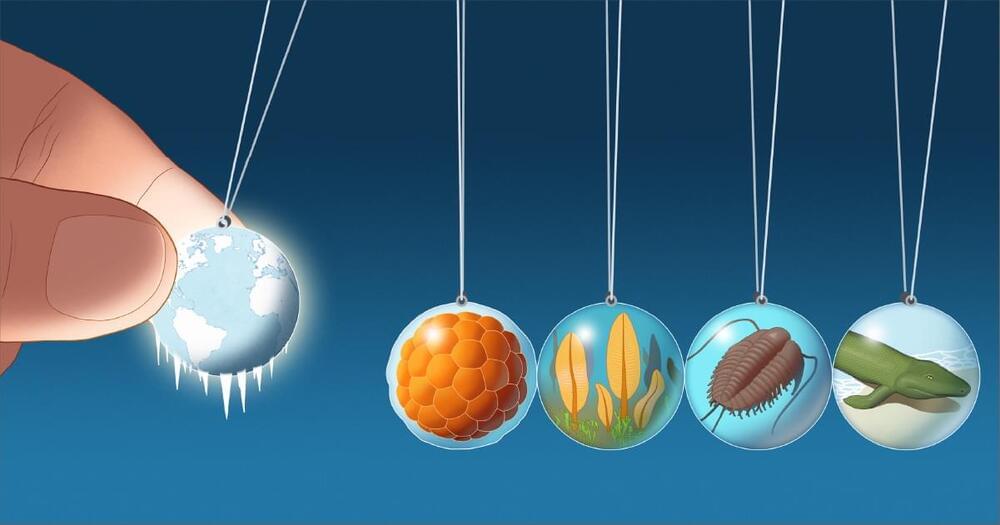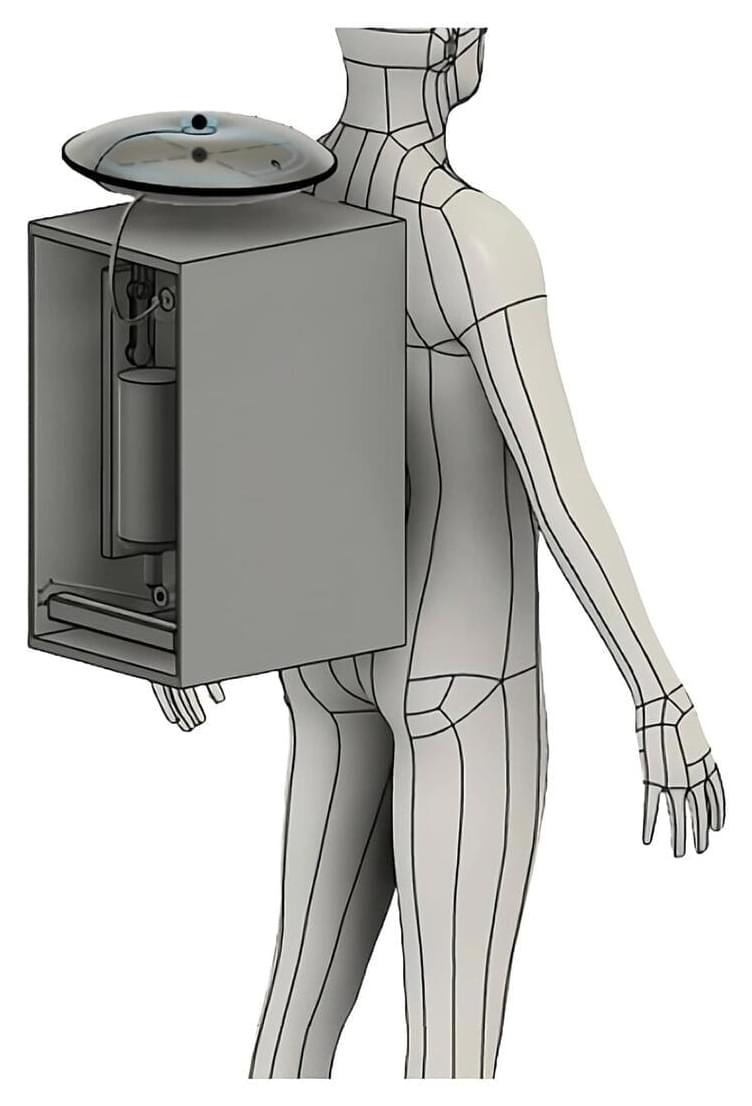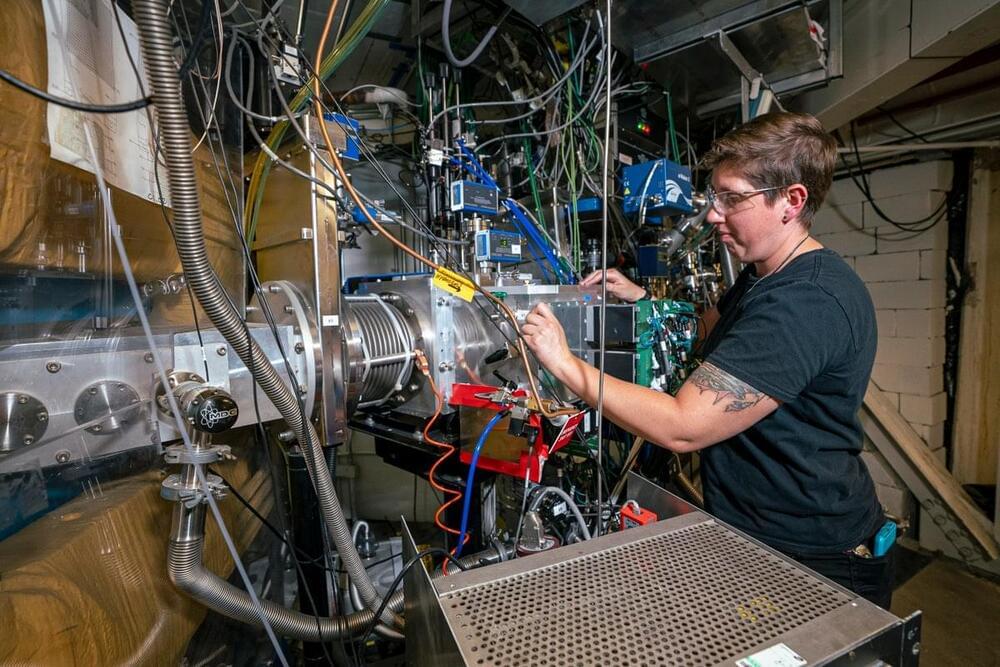When seawater gets cold, it gets viscous. This fact could explain how single-celled ocean creatures became multicellular when the planet was frozen during “Snowball Earth,” according to experiments.



The new spacesuit urine filtration system by Cornell researchers recycles astronauts’ urine into drinkable water, aiming to improve comfort and efficiency on future Moon and Mars missions.
Currently, astronauts must relieve themselves inside their spacesuits during spacewalks. This is not only uncomfortable and unhygienic, but also wasteful. Unlike the wastewater management system on the International Space Station (ISS), the water from urine during spacewalks is not recycled.
Researchers at Cornell are addressing this issue with a novel urine collection and filtration system inspired by the ‘stillsuits’ from the sci-fi franchise Dune. Like these ‘stillsuits’, their prototype absorbs and purifies urine, and recycles it into drinking water.

For generations, researchers have been pondering the question of how and where consciousness is formed in the brain.
Professor Ekrem Dere from Ruhr University Bochum, Germany, proposes a new approach to researching conscious cognitive information processing. He advocates defining phases of conscious cognitive processes on the basis of behavioral observations and learning curves.

In the ongoing fight against climate change, is it better to plant trees or allow nature to do it for us? This is what a recent study published in Nature Climate Change as a team of international researchers investigated the cost-effectiveness of reforestation for mitigating the effects of climate change, specifically regarding whether planting trees or natural reforestation are appropriate measures for this effort. This study holds the potential to help scientists, conservationists, and the public better understand the steps that can be taken to mitigate the effects of climate change, for both the short and long term.
“Trees can play a role in climate change mitigation, for multiple reasons,” said Dr. Jacob Bukoski, who is an Assistant Professor in the Oregon State University College of Forestry and a co-author on the study. “It’s pretty easy to understand that forests pull carbon dioxide from the atmosphere and store it, and trees are something pretty much everyone can get behind – we have seen multiple bipartisan acts for tree planting introduced in Congress. This study brings a nuanced perspective to the whole ‘should we plant trees to solve climate change’ debate.”

In this episode of In Conversation, we turn the focus to all things extreme exercise and longevity. Based on the findings of a recent study, which found that a select group of elite runners could live around five years longer on average than the general population, Medical News Today editors Maria Cohut and Yasemin Nicola Sakay discuss the probable biological mechanisms behind how more extreme forms of exercise, such as 4-minute mile running, affect longevity with an expert in cardiology.
Joining the conversation is Michael Papadakis, president of the European Association of Preventive Cardiology (EAPC), professor of cardiology at St George’s, University of London, honorary consultant cardiologist at St George’s University Hospitals National Health Service Foundation Trust, and consultant cardiologist at Cleveland Clinic London in the United Kingdom.
Papadakis shares easy-to-follow advice on how to incorporate more physical activity into our daily lives while discussing the potential health risks and benefits of running and similar forms of professional athletic performance.


A novel way of making superheavy elements could soon add a new row to the periodic table, allowing scientists to explore uncharted atomic realms.
By Max Springer

In a scientific breakthrough, an international research team from Germany’s Forschungszentrum Jülich and Korea’s IBS Center for Quantum Nanoscience (QNS) developed a quantum sensor capable of detecting minute magnetic fields at the atomic length scale. This pioneering work realizes a long-held dream of scientists: an MRI-like tool for quantum materials.
The research team utilized the expertise of bottom up single-molecule fabrication from the Jülich group while conducting experiments at QNS, utilizing the Korean team’s leading-edge instrumentation and methodological know how, to develop the world’s first quantum sensor for the atomic world.
The diameter of an atom is a million times smaller than the thickest human hair. This makes it extremely challenging to visualize and precisely measure physical quantities like electric and magnetic fields emerging from atoms. To sense such weak fields from a single atom, the observing tool must be highly sensitive and as small as the atoms themselves.

The first 150 people to join Planet Wild clicking this link or adding my code ISAAC7 later will get their first month for free https://planetwild.com/r/isaacarthur/.…
If you want to get to know them better first, check out their video about restoring barren land under powerlines into thriving ecosystems: https://planetwild.com/r/isaacarthur/.…
We often try to distinguish between what is alive and what is a machine, and note that machines can’t reproduce or fix themselves, but that may soon change.
Visit our Website: http://www.isaacarthur.net.
Join Nebula: https://go.nebula.tv/isaacarthur.
Support us on Patreon: / isaacarthur.
Support us on Subscribestar: https://www.subscribestar.com/isaac-a…
Facebook Group: / 1583992725237264
Reddit: / isaacarthur.
Twitter: / isaac_a_arthur on Twitter and RT our future content.
SFIA Discord Server: / discord.
Credits:
Self-Repairing Machines.
Episode 457; July 25, 2024
Produced, Narrated \& Written: Isaac Arthur.
Editor:
Lukas Konecny.
Graphics:
Jeremy Jozwik.
Ken York.
Select imagery/video supplied by Getty Images.
Music Courtesy of Epidemic Sound http://epidemicsound.com/creator.
0:00 Intro.
0:17 Susan.
3:03 Fundamentals.
10:52 Sensing and Diagnostics.
14:19 Advanced Materials.
21:56 Robotics.
24:11 Artificial Intelligence